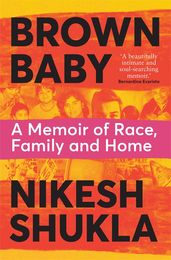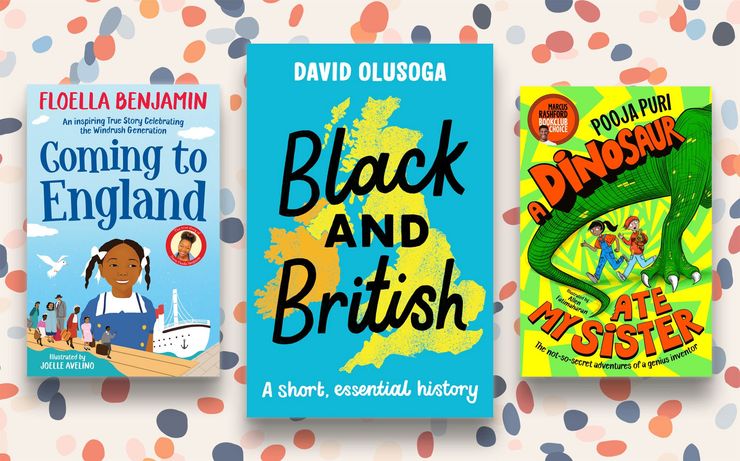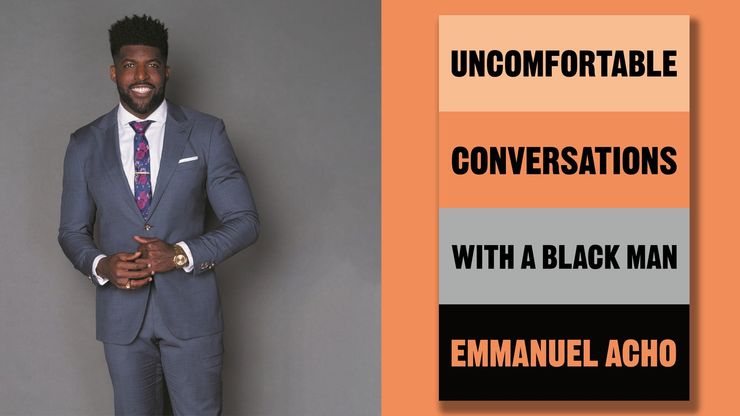Sarah Shaffi reflects on Nikesh Shukla's memoir Brown Baby
Journalist and co-founder of #BAMEinPublishing, Sarah Shaffi reflects on Nikesh Shukla's mesmerising memoir Brown Baby and her own experience of growing up as the child of immigrant parents.

In Brown Baby, Nikesh Shukla grapples with the question of how to prepare children for a world that is racist, sexist and facing climate crisis, while also showing them all the joy that life can bring. Reading Nikesh’s heartwrenching yet hilarious memoir, Sarah Shaffi looks back on her own childhood experience as a daughter of immigrant parents and reflects on her responsibilities to the brown babies in her own life.
I am on the playground at school, alone (I've recently been ousted from my friendship group by a mean blonde girl), and a girl a little older than me has told me to go home. Even though I’m seven, I know instinctively she doesn’t mean the place a 10-minute walk away from where I’m standing. I splutter and tell the dinner lady on duty in the playground, but nothing is done; she just tells me to ignore the girl.
I am a couple of years older, and have spent my summers running between neighbours’ houses. We’re a little gang – me, my neighbour, the girl up the road. This year, a new boy, who lives in the last house on our street, has joined us. But when he invites us to play at his house, he says I can’t come because I’m not the same as him, because I look different. I protest, turning my hands up to show my palms, but he’s unconvinced. At home, my mother, understanding what has happened in a way I do not, tries to comfort me, telling me that he’s no longer welcome at our house and there are better people to have as friends.
The memories wash over me as I read Nikesh Shukla talking about being taunted in the playground. ‘I didn’t really acknowledge I was a different skin colour to other people till I went to school and three kids would lick their wrists in the playground and pretend they tasted of milkshake,’ he writes in Brown Baby. ‘Whereas I, their theory went, must taste like shit.’
My experiences as a child were not as bad as Shukla’s, but the feelings of shame and alienation that came from those incidents, and from where I was excluded when other girls weren’t, still lingers. As an adult, I’ve come to realise these children weren’t just forming their own opinions about me, that they were influenced from somewhere. That their parents had likely taught them – whether with actual words or unconsciously – that my skin was dirty, or not as worthy, that I wasn’t the same as them.
My parents taught me that I was worthy, but that the rest of the world didn’t see that as a given. I grew up at a time where discussions about racism and prejudice didn’t happen in the wider world with the frequency they do now. The term ‘woke’ didn’t exist in the way it does now, and even though ‘microaggression’ had been coined decades before, it wasn’t in wide use.
‘Children of immigrant backgrounds in the United Kingdom get the same speech from our parents: you have to work twice as hard to have half the opportunities,’ writes Shukla. ‘I know women of colour who received a private addendum from their mothers: you’ll have to work twice as hard as men of colour because what few opportunities there are will be handed to them first.’
‘My parents, in an attempt to shelter me, I’m sure, talked about racism and being an immigrant indirectly – I was told to work hard, there was an emphasis on going to a good school and getting good exam results’
I didn’t get the speech in quite those words, but as a child of immigrant parents, I know exactly what Shukla is talking about. My parents, in an attempt to shelter me, I’m sure, talked about racism and being an immigrant indirectly – I was told to work hard, there was an emphasis on going to a good school and getting good exam results, and doing something at university that would lead to a profession (on that last one, I did that most general of degrees, English Literature, setting me up for everything and nothing).
At the time, that sometimes chafed. On days when my friends were talking about sleepovers or hanging out with boys, I was at home doing homework, or worse, chores. There was no free pass: where white friends went home and relaxed after school, I went home and was expected to do my daily chore of drying the dishes (something I still hate) and be present instead of hiding in my room.
Looking back now, I am grateful for everything my parents did and the way they did it, but, like Shukla says, reflecting on how to talk to his daughters about their heritage, times have changed. ‘Of course my parents raised me differently than they might now: they came here for specific reasons,’ writes Shukla. ‘To give their children opportunity.’
Shukla has summed up a thought that often lingers in the back of my mind: that my parents moved here in the hopes that their children would have opportunity. In a way, the whole of Brown Baby is about this, about creating opportunity and enabling the brown babies in our lives to grow up in a better, nicer, kinder world, and to pass that on.
‘I look at these brown babies, and I hope that I’ll be able to give them enough books that show brown children at their centre, give them enough toys that they see the diversity in the world, flourish them with every opportunity so that they know their voice matters.’
It’s something I think about often as the number of brown babies in my life have increased: my beautiful niece, my cousins’ children, the children of friends. I look at these brown babies, and I hope that I’ll be able to give them enough books that show brown children at their centre, give them enough toys that they see the diversity in the world, flourish them with every opportunity so that they know their voice matters.
'We are the main characters,' writes Shukla in Brown Baby.
In five words, Shukla has summed up what I want the brown babies in my life to always know, and it’s this thought I’ll carry forward with me, this promise I’ll make. And, like Shukla, I’ll sometimes struggle with how to do that, but I’ll never give up.
Because you, my darlings, you are the main characters.
Brown Baby
by Nikesh Shukla
This heart wrenching but hilarious memoir is dedicated to Nikesh’s two daughters, and explores themes of racism, feminism and parenting as Nikesh struggles to prepare his children for a world that is racist, sexist and facing climate crisis. Faced with all this, it can be hard to find hope, and even joy, in the world but through love, grief, food and fatherhood Nikesh shows it is possible.
Find the perfect parenting books to support your parenting journey.



